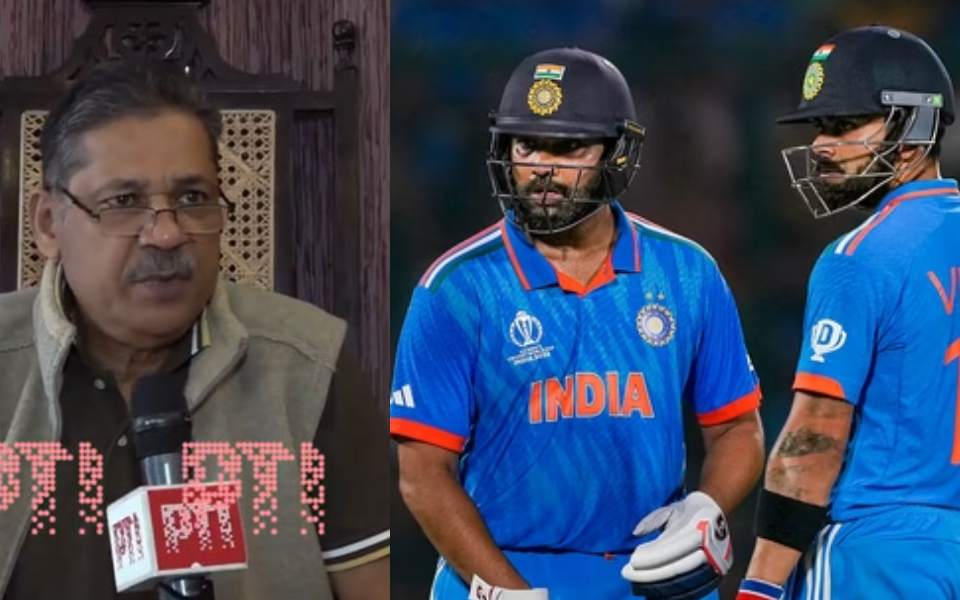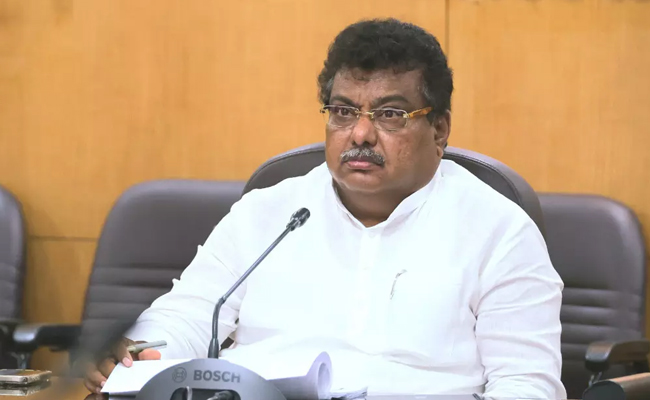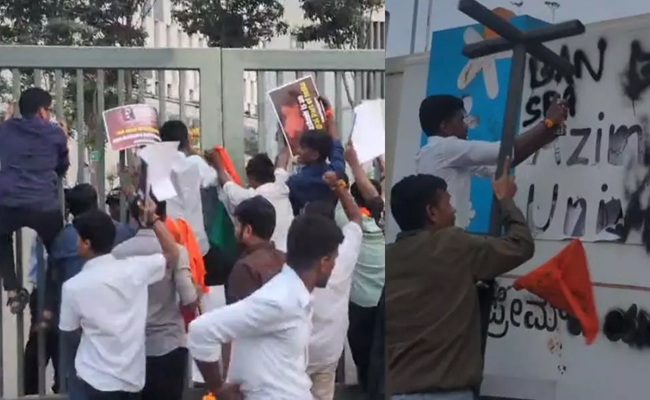New Delhi (PTI): Member of the 1983 World Cup-winning team Kirti Azad on Thursday backed the BCCI's directive for cricketers to play Ranji Trophy, saying it's a good move and the rule should be applicable to every India team player, including Rohit Sharma and Virat Kohli.
The out-of-favour duo of Ishan Kishan and Shreyas Iyer were excluded from the list of centrally-contracted players after they ignored the directive to play Ranji Trophy.
"It (directive) is a very good move. Everybody should be playing Ranji Trophy cricket, but currently the emphasis is on the IPL. It is good, it is entertaining but the real cricket is the (five) days' cricket. Playing in domestic cricket is good, it keeps you in touch.
"But whenever you are free, even if you're a Rohit Sharma or a Virat Kohli, you should go back and play domestic cricket for the state. That (state) gave you the opportunity to be a player, get selected and then play for the country.
ALSO READ: Rohit, Virat remain in top bracket; Kishan, Iyer dropped from BCCI central contracts
He felt that penalising just Ishan and Iyer wasn't right.
"Just to penalise the two is not correct, I think everybody should be penalised. Everybody should be seen with the same mirror," Azad told PTI Video.
Azad declined to comment on whether this was the potential end of the road for Ishan and Iyer after their names were excluded from the list of centrally-contracted players.
"My question is, are they playing enough domestic cricket? They are playing T20 cricket, nowadays and every other state has a T20 cricket league. Back in the days when we were starting our careers, players like Bishan Singh Bedi, Madan Lal, Surinder Amarnath, Mohinder Amarnath, Chetan Chauhan, Sunil Gavaskar, Sandeep Patil, Karsan Ghavri played alongside youngsters like me and Ravi Shastri.
"All these senior Test team players would play for their sides, would play for the pride of their state which seems missing in the youngsters nowadays," he added.
He questioned why India players had issues playing domestic cricket while England cricketers willingly played county cricket when not in the national side.
"Look at county cricket; there are 20-plus counties and there are numerous three-day and four-day games along with T20 cricket, but every player is involved there. If a player is left out of the Test squad, then he returns to play for his county.
"So why can't we have our players playing those domestic matches, that's the big question," he added.
He praised players like Dhruv Jurel and Sarfaraz Khan for finding the balance between T20 cricket for their IPL teams and playing Ranji Trophy.
"There are players like Jurel, Sarfaraz who do play T20 cricket but, at the end of the day, are also representing their states in the Ranji trophy. The bowlers also get into the rhythm of bowling longer spells when they regularly play domestic cricket. It (Ranji) is not a form of slam-bang and thank you," he said.
VIDEO | Here's what former cricketer Kirti Azad (@KirtiAzaad) said on #BCCI dropping Ishan Kishan and Shreyas Iyer from central contract.
— Press Trust of India (@PTI_News) February 29, 2024
"It's a good move. I think everybody should be playing domestic cricket, Ranji Trophy especially, because you come through the ranks and play… pic.twitter.com/wcndYPLl6o
Let the Truth be known. If you read VB and like VB, please be a VB Supporter and Help us deliver the Truth to one and all.
Bengaluru (PTI): Karnataka Minister M B Patil on Tuesday chaired meetings with industry representatives from the aerospace and defence, machine tools, auto/EV, and green energy sectors to discuss sector growth and government support measures.
The meetings were attended by leading industrialists and their representatives, with some participating virtually.
Speaking on the occasion, the minister for Large and Medium Industries said Karnataka is at the forefront of the country’s aerospace and defence sectors.
He noted that Suzuki and Toyota plan to launch aerial taxi services in Japan by 2028, with Bengaluru-based Sasmos supplying electrical equipment for the project.
Industrialists suggested introducing similar “fly-taxi” services in Karnataka through an appropriate policy, which Patil said would be examined seriously.
The minister highlighted the need to establish testing centres and Common Facility Centres for the aerospace and defence industries and assured that these facilities would be provided.
Suggestions were also made to prepare a comprehensive roadmap for sector growth.
Karnataka has urged the Central Government to approve Defence Corridor projects in the Bengaluru North–Kolar–Chikkaballapur and Dharawada–Vijayapura–Belagavi regions.
Industrialists also suggested a corridor between Bengaluru and Mysuru, Patil said.
He said Karnataka aims to become a hub for defence electronics manufacturing, with plans to establish a 200-acre Defence Electronics Park and a 100-acre Avionics and Sensor Park.
These projects will be implemented once the Special Investment Region is operational, and land availability will not be an issue.
On the machine tools sector, Patil said the industry has recorded an annual turnover of Rs 36,500 crore and is witnessing steady growth.
Large-scale exhibitions have increased demand, and the state must strengthen its capabilities to develop control systems for heavy machinery. One testing unit is already operational in Bengaluru, with another planned for Tumakuru. Expansion of vocational training institutes in industrial areas is also underway.
In the Auto and EV sector, Vision Group members highlighted the need for a network of dry ports and more EV charging stations across the state.
Patil noted that the Tata Group is manufacturing EV buses in Dharawada for nationwide supply. Plans for mini excavator production and export facilitation were also discussed, along with the establishment of a testing facility for two-wheeler EVs.
For the Green Energy sector, the group emphasised the need for a suitable policy on battery-based energy storage and the establishment of data centres.
Patil assured that the government will seriously consider all suggestions and respond positively.





_vb_21.jpeg)